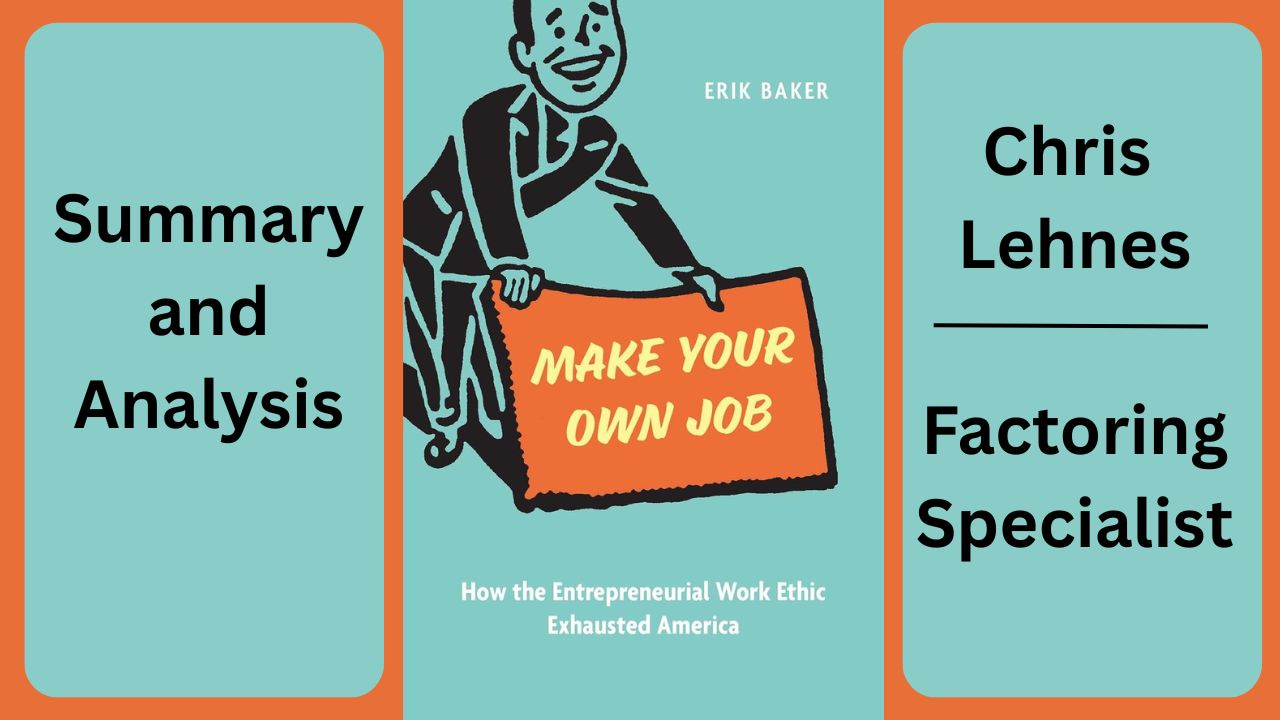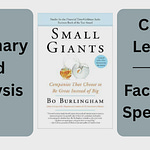I. The Genesis of Entrepreneurial Authority and its Contradictions (Early 20th Century)
The early 20th century saw the emergence of a distinct entrepreneurial authority, often rooted in the "personality" of the firm's leader, while simultaneously grappling with the rise of bureaucratic structures and the influence of new psychological and philosophical movements.
Personality as Corporate Policy: Business executives began to frame the success of a firm through the "personality" of its founder or head. A. Montgomery Ward noted that the "primary personality of business… influences every employee, stimulates every manager, creates duplication of each good idea upon the broadest plane until each part of the great combination is enjoying the best that each other part has.” This quasi-mystical language linked the leader's individual dynamism to the collective success of the enterprise.
Ford's Charismatic and Violent Authority: Henry Ford exemplifies this personal authority, which, despite a “Sociological Department” for surveillance and moral enforcement, ultimately relied on a "methodical brutality" enforced by deputies like Harry Bennett. Ford's hiring question, “Can you shoot?”, highlights his intolerance for "any rival governing force in his firm besides his own personal dynamism." This illustrates a tension between nascent bureaucracy and raw personal power.
New Thought and the Cultivation of Success: The "New Thought" philosophy played a significant role in shaping success ideals. It emphasized mental work, imagination, and willpower as keys to achievement. Marcus Garvey, a prominent Black leader, was a "voracious" reader of New Thought, believing that "industrial and commercial expansion and conquest" was "the new thought, the new hope" for Black racial greatness. Napoleon Hill, a notorious "con man" of the era, popularized a secularized version of New Thought, claiming a fabricated relationship with Andrew Carnegie to dispense his "law of success," which highlighted "imagination" as the source of "IDEAS" (always capitalized for "quasi-supernatural valence").
Early Economic and Management Theories: Economists like Werner Sombart, Joseph Schumpeter, and Frank Knight contributed to understanding the "entrepreneur function." Schumpeter defined the entrepreneur by their role in "creative destruction," while Knight emphasized the entrepreneur's function in bearing "risk, uncertainty, and profit." Early management theory, influenced by figures like Frederick Winslow Taylor (Taylorism) and Walter Dill Scott, focused on scientific management and personnel psychology, aiming to optimize worker efficiency and motivation.
II. The Great Depression and the Reconceptualization of Entrepreneurialism
The economic upheaval of the Great Depression compelled a re-evaluation of entrepreneurialism, presenting it as a dynamic solution to widespread joblessness and economic stagnation, even as it challenged traditional notions of work.
Direct Selling as a Dynamic Island: In a period of economic stagnation, direct-selling companies like Avon (California Perfume Company - CPC) thrived, portraying their salesforce (predominantly female) as resourceful and independent. Avon literature framed selling as "a laudable act of feminine social service, not merely a business opportunity," enabling women to "make new friends, minister to those in need of a friend, and help others to get on a better financial footing." This reconceptualized direct selling as acceptable "women's work" that provided dynamism amidst the Depression.
"Executives" as Entrepreneurs: William T. Grant, a chain-store magnate, adapted the entrepreneurial image to describe his store managers as "independent businessmen" rather than "mere employees." He argued that managers were "executives—not clerks—and when they have left our organization they have proved able to successfully operate their own store," contrasting them with clerks whose "initiative" and "ingenuity" had "atrophied from underuse." This shifted the perception of a corporate role towards an entrepreneurial one.
The Appeal of Self-Help: The Depression gave a "new jolt of life" to secularized New Thought in advice writing. Napoleon Hill's populist message, emphasizing "specialized knowledge" and "IDEAS" over traditional academic education, resonated with professionals facing precarity, offering a "change of heart but not of vocation."
III. Democratic Leadership, Development, and Post-War Entrepreneurialism
The post-war era saw entrepreneurial principles integrated into concepts of democratic leadership and national/international development, often blurring the lines between public and private sectors.
Social Entrepreneurship and Regional Development: David E. Lilienthal, the principal director of the Tennessee Valley Authority (TVA), presented the agency as a model of "democratic" development, relying on "grass roots" private initiative. He viewed development as a "change... in the way men think, and so thinking, act," fostering qualities like "resourcefulness," "inventiveness," and "pride of workmanship" in workers, making them "better equipped for a modern, industrial, capitalist economy." Lilienthal later coined the term "social entrepreneurs" for leaders operating at the intersection of public and private sectors.
Private Business Partnerships in Wartime and Development: The Roosevelt administration's approach to economic mobilization for World War II relied heavily on private business partnerships, with Secretary of War Henry Stimson explaining, "If you are going to try and go to war, or to prepare for war, in a capitalist country, you have to let business make money out of the process or business won’t work." This precedent extended to New Deal programs like the Reconstruction Finance Corporation (RFC) under Jesse H. Jones, emphasizing cooperation with local business executives.
Entrepreneurship and International Development: Post-WWII, American social scientists, particularly at Harvard Business School, extensively researched entrepreneurship's role in the "modernization" and "Westernization" of "Third World" nations. David McClelland's work on "achievement motivation" became central, suggesting that individuals could "literally rewrite their personalities to become more entrepreneurial" through psychological interventions like modified Thematic Apperception Tests (TAT). This approach emphasized "cultural transformation" and "human factors" over purely economic methods.
Corporate Entrepreneurship ("Intrapreneurship"): Within large corporations, the concept of "simulated decentralization" (Peter Drucker) and "simulated entrepreneurship" (Tom Peters and Robert Waterman) emerged, aiming to foster entrepreneurial spirit internally. Companies like 3M, with its "venture teams," were lauded for allowing employees to act as entrepreneurs within the organizational structure, contributing to successful products like the Post-It Note.
IV. The Modern Entrepreneur and the "Entrepreneurial Work Ethic"
The late 20th and early 21st centuries saw the entrepreneur elevated to a cultural icon, particularly within conservative ideology, influencing the perception of work and individual responsibility.
The "Founding Father" Entrepreneur: Ray Kroc, McDonald's CEO, cultivated a personal mythology as the "Founding Father" of McDonald's, embodying "entrepreneurship, his competitiveness, his integrity." Despite not inventing the core business model, Kroc's relentless ambition to make McDonald's an "American institution" solidified his image as the true entrepreneur. This reinforced a "masculinism historically associated with the 'entrepreneur' concept into a potent family metaphor."
Small-Town Entrepreneurship and Decentralization: Sam Walton, founder of Wal-Mart, epitomized entrepreneurial success through his strategy of targeting underserved small towns and promoting internal "proprietorship" among his managers. His "Store Within A Store" program provided department managers with profit data and incentive pay, giving them "the pride of proprietorship even if they weren’t fortunate enough to go to college or be formally trained in business.”
Social Entrepreneurship and Microfinance: Muhammad Yunus, founder of Grameen Development Bank, became a global celebrity for his "microfinance" model, providing small loans to women in the Global South. Yunus proudly declared himself a "social entrepreneur," asserting that "Microcredit institutions are powerful because they are not about charity for the poor, but are based on business principles." This discourse suggested that poverty could be eradicated through market mechanisms, blurring the line between social good and profit-making. The concept gained significant traction, especially during the Clinton era, with initiatives like the Good Faith Fund in Arkansas, patterned on Grameen.
The Ambiguity of the "Gig Worker" and the Entrepreneurial Work Ethic: The "entrepreneurial work ethic" pervades contemporary understanding of labor, particularly in the "gig economy." Taxi drivers are presented as "enduring symbols" of this ambiguity: are they "factory workers, doing a clearly defined job on behalf of a boss, or... like entrepreneurs, managing themselves, jockeying for customers, making their own jobs?" The sources suggest that this perception thrives "most in times and places when workers feel unable to answer this question as definitively" as the character Damani in Your Driver Is Waiting, who identifies politically as a worker. The prevailing message is that it's "a spectrum that every worker sits on, and where they are located depends more on their attitude and the attitude of their managerial leaders than on the material facts of their job."
In conclusion, the entrepreneurial ideal has evolved from a charismatic leader's personal dynamism to a pervasive work ethic that shapes individual identity and societal approaches to economic development and social welfare. It has been adapted and reinterpreted across various historical contexts, consistently emphasizing individual initiative, imagination, and a "can-do" spirit, often blurring the lines between traditional employment, self-employment, and corporate structures, and sometimes obscuring the underlying material realities of work.














Share this post